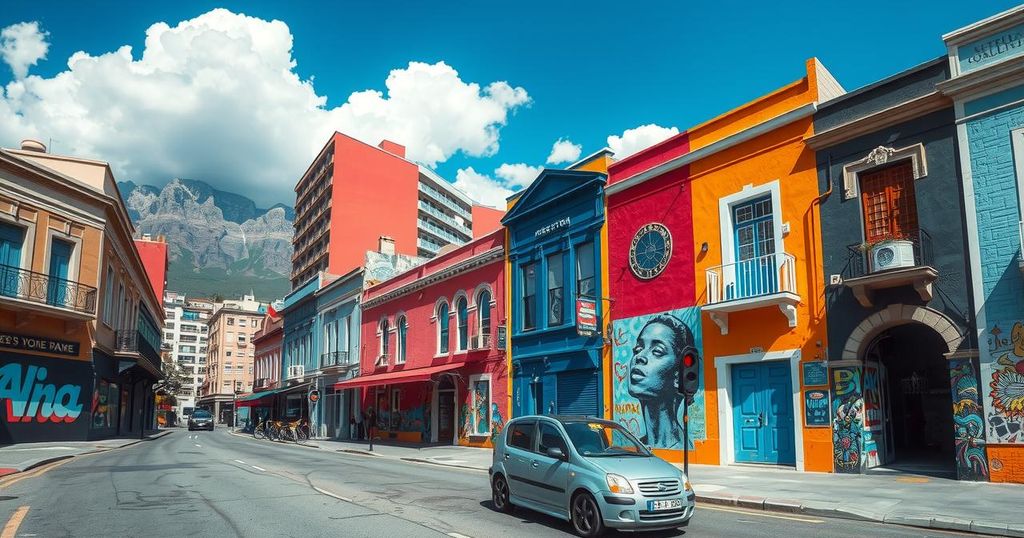Cape Town faces anti-tourism backlash from activists reacting to the influx of digital nomads, who are perceived as contributing to rising local costs and economic displacement. Activists criticize events that promote remote work, while officials like the mayor advocate for these workers’ economic benefits but acknowledge the need for equitable solutions. Global tensions regarding tourism are similar, as protests regarding its impact grow in various regions, particularly Europe.
Cape Town has recently become a focal point of anti-tourism sentiment, with local activists expressing discontent over the growing presence of digital nomads. This influx, primarily consisting of wealthier individuals from abroad, is perceived by some residents as detrimental, leading to increased living costs and economic displacement. Activists argue that these digital nomads contribute to rising property prices, making it difficult for locals to afford housing.
The city organized a Nomad Week, aimed at promoting the benefits of remote work and cultural exchange. However, this event sparked backlash from the activist group Dismantling the Ivory Tower, which criticized it as a “celebration of displacement” and likened it to a modern form of colonization facilitated by technology rather than military means.
Influencer Naledi Mallela further amplified sentiments against digital nomads via her TikTok, urging them to refrain from visiting South Africa. She expressed concern that the popularity of the destination has led to inflated prices for basic goods and experiences, adversely impacting local residents.
In contrast, Cape Town’s mayor, Geordin Hill-Lewis, defended digital nomads, stating they provide significant economic benefits. However, he acknowledged the necessity of balancing the interests of locals with those of temporary residents, indicating ongoing adjustments to taxation policies on rental properties.
A recent report by the United Nations World Tourism Organisation underscores the expansion of countries adopting digital nomad visa programs. While these initiatives offer opportunities for remote work, the ramifications on local economies remain complex and require careful evaluation. The report highlights an increase in digital nomad visas, with many countries catering to this new demographic since 2020.
Globally, anti-tourism sentiments are becoming more pronounced, particularly in Europe, where activists have begun staging protests against mass tourism. For example, in Spain, demonstrators have blocked access to popular sites, and discontent is growing over the impact of tourists on local communities. Activist groups are collaborating to strategize further actions aimed at reducing tourism in favor of protecting local interests.
As the movement against tourism intensifies, issues related to local affordability and accessibility remain central to discussions. Activists are aligning their strategies and continuing to voice their concerns about the consequences of tourism on their communities, signifying a broader trend across multiple regions.
The emergence of anti-tourism sentiment in Cape Town reflects the ongoing tension between economic benefits from digital nomads and the pressures they impose on local communities. Activists argue that the influx of remote workers exacerbates housing challenges, while some local influencers have voiced their concerns about rising costs of living. Although Cape Town’s mayor acknowledges the economic contributions of digital nomads, he emphasizes the need for equitable policy adaptations to protect locals. This debate mirrors global patterns, where similar protests are escalating across Europe against the overriding impact of tourism on daily life.
Original Source: www.dailymail.co.uk






